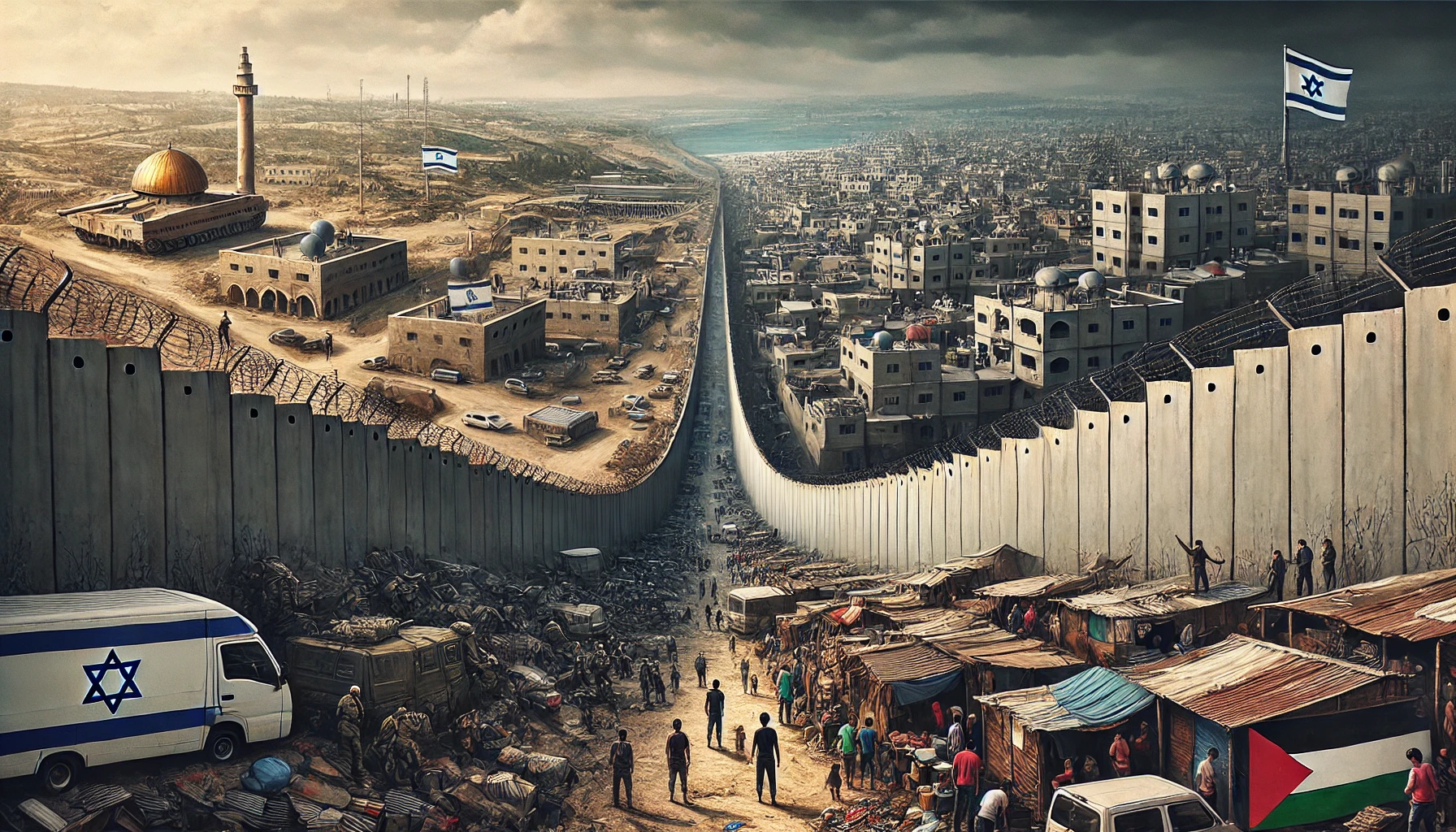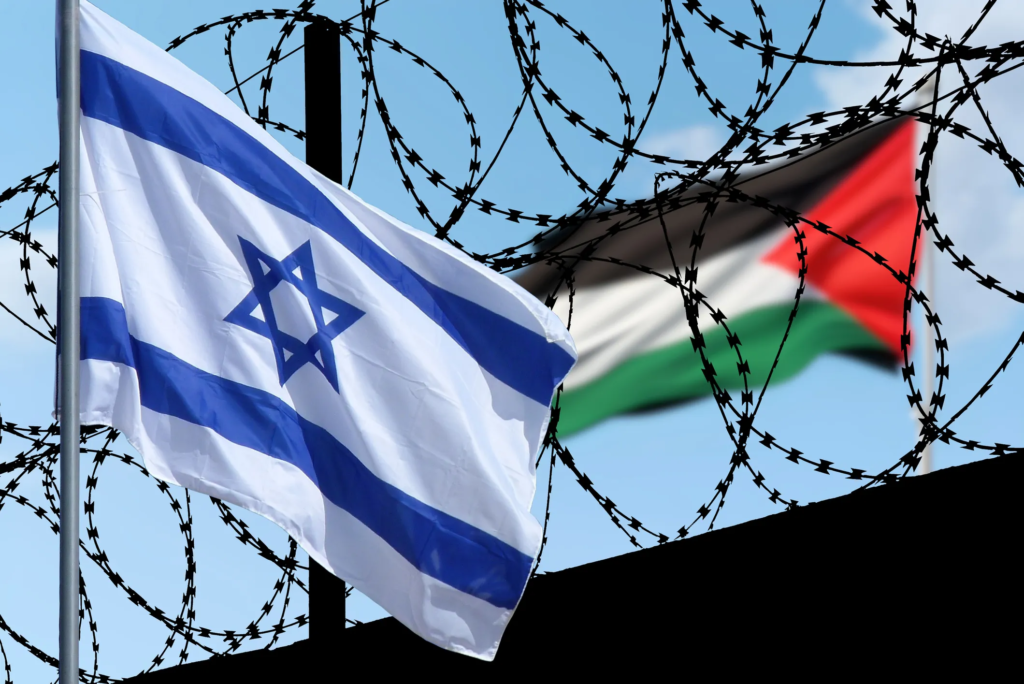
Abstract
Close to eight decades, but still, the Israel-Palestine conflict has never been out of the news. With time, it has not only remained a bilateral issue yet an international armed conflict where not only the conflicting parties, but other countries (especially the P5) tend to portray their self-interests. The recent complaint case of South Africa against Israel is not the first time this matter has been brought up in the International Court of Justice. But the claim of a ‘Genocide’ seems to widen the context of the situation. But is it really a Genocide? Or not? This unraveling situation of geo-politics not only determines the country’s present but the future would largely remain affected by the same. From the past 3 months, escalations have been observed in the MENA (Middle East and North Africa) region including the Israeli-Palestinian conflict again coming to a rise. Also, as we continue through this article, we would deeply study all the International Law obligations under claims made by South Africa, also about the violations of conventions and other customary humanitarian laws which are being violated amidst this conflict. Also, we would shed light upon the current humanitarian situation amongst the people of Palestine and the increasing terrorism in the area, which might be because of the interference of larger powers.
- Introduction: History and 21st Century
- After the consideration of the Balfour declaration, and the passing of resolution 181 of the United Nations (which widely received condemnation of the Arab states), Palestine went through a war which was widely supported by all the major countries of current day OIC (Organization of Islamic Cooperation); but the results were a little disappointing to them. After managing through the ‘Nakba’(Palestinian Catastrophe) period, Palestinian refugees got the ‘Right to Return’, which is well established in the United Nations Resolution 194. Later, in 1973, The Economic and Social Council, released its draft principles on the right to return of refugees which once again reaffirmed the right to self-determination of the Palestinian people. The following six-day war of 1967 gave the power to Israel to annex the areas of West Bank and Gaza Strip making mostly the Palestinian people IDPs (Internally Displaced People). Although settlements were made and the areas of the West Bank and Gaza Strip were given back to sovereign Palestine, Jewish people made settlements in the area of the West Bank and East Jerusalem.

- The 6-day Israeli war as well as the period of the first Intifada has raised the same concerns of a ‘Genocide’ by the Israeli government and terrorist organizations. Almost 10 massacres have been conducted by the Israeli government on Palestinian people at that time Also, rise of right-winged Palestinian extremist organizations, mainly of Hamas and its subsidies was witnessed at that period. At the same time, PLO (Palestinian Liberal Organization) was at its peak. Followed by it, the participation of Hezbollah and the annexure of Golan Heights remained a major issue. Whilst, the Israeli government always intended to take over the West Bank area, this was never possible.
- The current 5000 missile attack by Hamas on 8th October, 2023 has been in controversy due to the killing of more than 1000 civilians. In revert, the west-backed-Israel has also reiterated with a full-fledged war where almost 21,000 civilians have been killed as of now and the number is increasing at a great pace. This is the place where the term ‘Genocide’ locates itself. As we are now aware of all the previous history of the conflict and are in a position to enter into other aspects of this complaint.
- Legalization: Holdings and Backings
- South Africa’s case is backed by the 1948 Genocide Convention established by the United Nations which defines genocide and its other Legal complications. Although this convention has the status of customary international law and every state is obliged to not to prohibit the provisions of it; yet there could be severe violations seen. For example, in Rwanda, former Yugoslavia, Bosnia and Herzegovina and to an extent in Ukraine (by the claim of Russia). Also, this Convention glorifies the punishment of a genocide commitment, especially individual criminal responsibility or the principle of complementarity. And in such cases of Genocides, the state shall be responsible for all the tasks as well as a Universal Jurisdiction is established.
- Other legal aspects that may back this claim is the Article of crimes against humanity under the Rome statute of ICC. The International Criminal Court possesses the jurisdiction to prosecute and execute cases referring to Genocides. This body enjoys the above-mentioned principle of complementarity and individual criminal responsibility (well established by the legal body of UNGA-6). The same clause of Crime against humanity are covered in the Geneva Convention on laws of war and are granted the status of Customary law which makes it legally binding upon all the states acceding and ratifying it under the 1969 Vienna Convention of Laws on Treaties
- In such cases of Genocide, the United Nations Security Council has sometimes under Article 22 of the UN Charter established subsidiary organs under General Assembly to try people for genocide. Just like the Nuremberg Trials or the Tokyo Trials. Not only this, but tribunals are also set up for the same purposes just like the International Criminal Tribunal for the former Yugoslavia or Tribunal of Rwanda. The same responsibility has been set up under the Doctrine of Responsibility to Protect (R2P) that states that a country has to protect civilians.

- International Interference; West to East
- There has been a lot of interference from the West in this conflict. For example, during Bush’s administration, $21 Billion was supplied to Israel for defence purposes. Also, in 2007, there was a pact signed between the US and Israel which was bound for 10 years and gave Israel $30 billion in military aid. Not only this but the partial interference of the United Kingdom and France could also be seen. While the UK has deployed all of their ships in the Mediterranean Sea for Israel’s maritime security from the Houthis; France has also, on 24th October backed Israel with military assistance in this war. This brings conclusively to the fact that the West remains a large interfering party in the conflict which still remains to be a violation of Friendly relations amongst countries declaration.
- Backing Hamas, there always is China and Russia who still do not recognize Hamas as a terrorist organization and continue to see it as a liberatory organization. Not only this, these countries also have been supporting Iran in recent times, which is openly supplying arms to Hamas; especially via the Suez Canal. It is to be noted that supplying of these arms only perpetrates 60% of the civilian killings; either it be by Israel or Hamas. And simultaneously, we are able to see three different parties emerging out of this conflict which is the West, the East and the sovereign recognized PNA (Palestinian National Authority). The demand of a sovereign Palestine, of all countries, still continues.

- Humanity; Devastating effect
- Loss of humanity has been noticed in this war. Especially the claimed genocide shows that how many people are mercilessly killed. At last, then, there remains no difference between Hitler’s Germany and current-day Israel. Over 21,000 people have been brutally killed and massacred. Many examples which may arise are from Eastern Jerusalem or the Gaza Strip which has been mostly bombed by Israel. People have been killed in the Rafah border crossing from Gaza. The Israeli government ordered people in Gaza to move to the south of Gaza but somehow, kept bombing the south region itself creating no difference. Not only this but ill-treatment of refugees could be very well observed.
- As we talk about refugee camps, Jablia and Maghazi refugee camps have remained in controversy nowadays. People, who were taking shelter were relentlessly massacred in Jabalia refugee camp. As well as more than 70 people were massacred in the Maghazi refugee camp on Christmas Eve. This also remains a serious issue as it violates the Refugee Convention of 1951 as well as the Principle of non-refoulement.

Conclusively, to maintain Peace and Security around the world, nothing may work except diplomacy and dialogue. South Africa’s complaint of a genocide shows the act of diplomacy and it fosters dialogue in order to resolve the matter at hand. Lay down the weapons and let there be peace. At last, legal obligations, and international interference does not matter, but the suffering and pain could only be understood by the person who goes through it. As they very well say, ‘In order to understand Nazism, you have to be a Nazi in Hitler’s Germany’; I may take the same stance. The territory may not matter at the end, but the life of a human being does!



